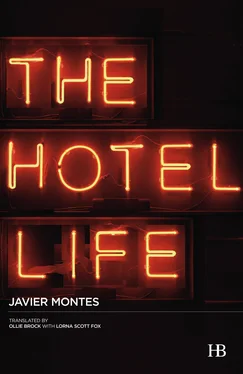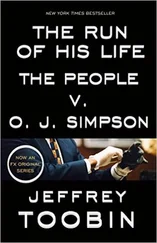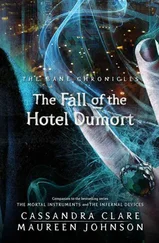Javier Montes - The Hotel Life
Здесь есть возможность читать онлайн «Javier Montes - The Hotel Life» весь текст электронной книги совершенно бесплатно (целиком полную версию без сокращений). В некоторых случаях можно слушать аудио, скачать через торрент в формате fb2 и присутствует краткое содержание. Год выпуска: 2013, Издательство: Hispabooks, Жанр: Современная проза, на английском языке. Описание произведения, (предисловие) а так же отзывы посетителей доступны на портале библиотеки ЛибКат.
- Название:The Hotel Life
- Автор:
- Издательство:Hispabooks
- Жанр:
- Год:2013
- ISBN:нет данных
- Рейтинг книги:3 / 5. Голосов: 1
-
Избранное:Добавить в избранное
- Отзывы:
-
Ваша оценка:
- 60
- 1
- 2
- 3
- 4
- 5
The Hotel Life: краткое содержание, описание и аннотация
Предлагаем к чтению аннотацию, описание, краткое содержание или предисловие (зависит от того, что написал сам автор книги «The Hotel Life»). Если вы не нашли необходимую информацию о книге — напишите в комментариях, мы постараемся отыскать её.
The Hotel Life — читать онлайн бесплатно полную книгу (весь текст) целиком
Ниже представлен текст книги, разбитый по страницам. Система сохранения места последней прочитанной страницы, позволяет с удобством читать онлайн бесплатно книгу «The Hotel Life», без необходимости каждый раз заново искать на чём Вы остановились. Поставьте закладку, и сможете в любой момент перейти на страницу, на которой закончили чтение.
Интервал:
Закладка:
After so many years of only using it to check in, my real name has come to seem more false to me than the false one; there aren’t many who know it, apart from the people at the paper, and fewer still — perhaps none at all, to tell the truth — who use it.
At exactly midday, just as I waved the cab down, it started to rain. I had neither coat nor umbrella. I must have been the only one not expecting it, because within a minute the storm traffic had congealed on the street. I didn’t mind. Actually, I would have been grateful if the journey had been even longer, even though I was paying and not the paper (I’m scrupulous on that point).
These days, the only kind of dashing around I do is in a taxi; it’s the only kind I still believe in. I never even finished the hundred-yard dash of getting my degree, and I’d stopped feeling I was taking part in the race of life at all some time ago. I’d say I got off to a pretty good start. But then I lost sight of the other runners: the ones we’re so aware of early on, in our twenties or at thirty, when we glance out the corner of our eye at those who are just behind us and trying to catch up (or so we think), when we calculate the distance the leaders have on us, conserve our energy, and plan shortcuts for the final sprint.
But there are no sprints that are worthwhile, I don’t think, much less the final one. In truth, I stopped running a long time ago. Running’s not worth it. We can walk at the speed that suits our feet best, and we’ll still get to where we were going. Or we can just stay still; lately I’ve had the impression that it’s things that move, not us. We just have to sit and wait — things don’t fail, because nothing ever fails and everything always happens.
Everything was happening (and in its rightful order) outside the taxi’s windows, at least: the utterly familiar streets, the doorways in single file, the treacherous flash of light as we turned a certain corner. Even while we were stuck in that traffic, everything kept passing by, as in the black and white taxis in old gangster movies, where the interior of the car was solid and still enough that a person could live in it forever, despite the mock hurricane of shaking that the strongest runners on the set were whipping up outside. And the actors would sit in front of the backdrop where dripping streetlamps and blurry sidewalks and pedestrians’ ancient shadows were projected. Luckily for us, at night they always drove with the lights on inside the car. And it wasn’t difficult to spot the trick they were using for the scenery in those movies. They were still so sure of themselves back then, perhaps they let it be obvious on purpose. The driver would spin the wheel without any turn registering in the background, or the background would just vibrate and shake and let shafts of light cut across it behind the outline of the windows. As though the man in charge of the special effects had simply gotten tired of pretending.
A similar thing happened in the cartoons that preceded the grown-up movies when we were children: the jabbering bear or the cat with the hat would run and run and run. And behind them, at great speed, a repeating sequence of trees and buildings flew past. It was done to save money — that way a single background drawing was enough for each character, fleeing in his cloud of dust. There was no need for anyone or anything to ever actually move in those fast-paced scenes. As a boy, I quickly discovered this looping technique; even before I could explain it, I was an expert at sniffing it out.
It occurred to me on the way to the hotel that I was running away in that unnecessary taxi. Or playing at running away, like the hammy policemen and gangsters. Because unless it’s to try and give someone the slip, nobody gets into a car, without any luggage, only to check into a hotel ten blocks away. And if he does and someone really is following him, he’ll look suspicious. It makes it seem like the person is trying to cover his tracks, just as they did — and do to this day — in old movies.
But nobody was about to follow me or shout “Follow that cab!” The driver wasn’t even surprised at how short a ride it was to the hotel — in that car that itself felt like a hotel room where a person could stop for the night and imagine he was hiding from his pursuers.
It’s all made up, of course. If it weren’t for the updates I send the paper from hotels, I’d have been lost to everyone some time ago.
Twenty past twelve on a dull Tuesday afternoon in October: the bored doorman didn’t open the door of the taxi for me, nor did he take my bag, but he did accompany me with an immense umbrella to the revolving door. Given the grandiose canopy we were walking under, it was more ornamental than anything else; at most, it worked as a baton that set the tone for the rest of the hotel.
The two receptionists in the deserted lobby were bored as well; in fact, the whole hotel seemed to be bored in that unhappy hour of hotel lobbies, when no one of sound body or sound mind is in their room, when it’s too late to check out, and too early to check in, and the tide of guests past and guests to come is stilled.
From close up, the receptionists looked very young and not very pleased to see me. Maybe the last thing they ever expected from that job was to find themselves having to check in a guest. The two of them, in perfect synchronization, riveted their eyes to the reservations screen. At their age, disdain and discomfort are hard to tell apart.
I hadn’t been into the Imperial since I was a child. I’ve passed any number of times by the hotel’s facade, which is as pompous as its name, and I’ve seen its two corner turrets from many a balcony. They still look new, but it’s more than a hundred years now that they’ve been marking the location of the business district and helping to orient the outsider who looks on the city from a distance (and knows where to look). They were built as beacons of patriotic cosmopolitanism, and they looked irredeemably rancid from the start. Like the hotel itself — which had had its bullfighting appreciation meetings, its provincial casino air, and a lot of foot traffic at cocktail hour, but where no one ever seemed to spend the night.
The deathly silence of the lobby was in fact made up of many sounds: glasses clinking somewhere far off, the gallop of vacuum cleaners on the other side of the world. And, naturally, the sinuous, tenuous stream of piped-in techno music. It slithered between the legs of the furniture before coiling around your ankles and then going in one ear and out the other. It went with the new designer décor, which was splashed so prominently over the brochures sent on from the newspaper that I still can’t even tell if I liked it. And I’m sure I’ll never know, because that’s the idea with these things: it’s never supposed to matter much, really, whether you can tell or not.
I hear the previous owners sold the whole thing for next to nothing. Even so, the new owners obviously struggled to fund the remodeling. In the leaflets I had read, clichés of the genre abounded: this was a refuge for the wizened nomad, an operations hub for the international jet-setter. All so much superhero jargon that boils down to a few showy lamps that don’t give off much light. Although they do give off enough to tell that the armchairs and carpets in the lobby will be less pleasant to the touch than they are to look at. The bell jars of wax flowers that I remembered dimly — no, not dimly: as vividly as a nightmare within a vague, blurred recollection — are gone. But they’ve held back on the real flowers, and in vain do they squirt their air freshener — even now, in the middle of the day, the ghost of bullfight-afternoon cigars still hangs.
And the ghosts of the bulls, too, because there is something that has been left over from before: on the wall behind the counter, as though for a joke, hang the stuffed heads of those that have seen fiercer days. A Sobrero , an Embajador and a Navegante , gazing now dumbfounded over everything below them. For a moment, I thought I recognized their faces. Or that their glass eyes twinkled as they recognized me. I saw myself, faintly, as a child: holding someone’s hand and surrounded by adults who were talking without knowing how to take leave of one another, looking up at those same giant heads in the lobby, their tongues just barely sticking out of the second-rate stuffing. I don’t know if it’s a made-up memory or if I really did feel back then, as I did a moment ago, the same twinge of solidarity.
Читать дальшеИнтервал:
Закладка:
Похожие книги на «The Hotel Life»
Представляем Вашему вниманию похожие книги на «The Hotel Life» списком для выбора. Мы отобрали схожую по названию и смыслу литературу в надежде предоставить читателям больше вариантов отыскать новые, интересные, ещё непрочитанные произведения.
Обсуждение, отзывы о книге «The Hotel Life» и просто собственные мнения читателей. Оставьте ваши комментарии, напишите, что Вы думаете о произведении, его смысле или главных героях. Укажите что конкретно понравилось, а что нет, и почему Вы так считаете.












